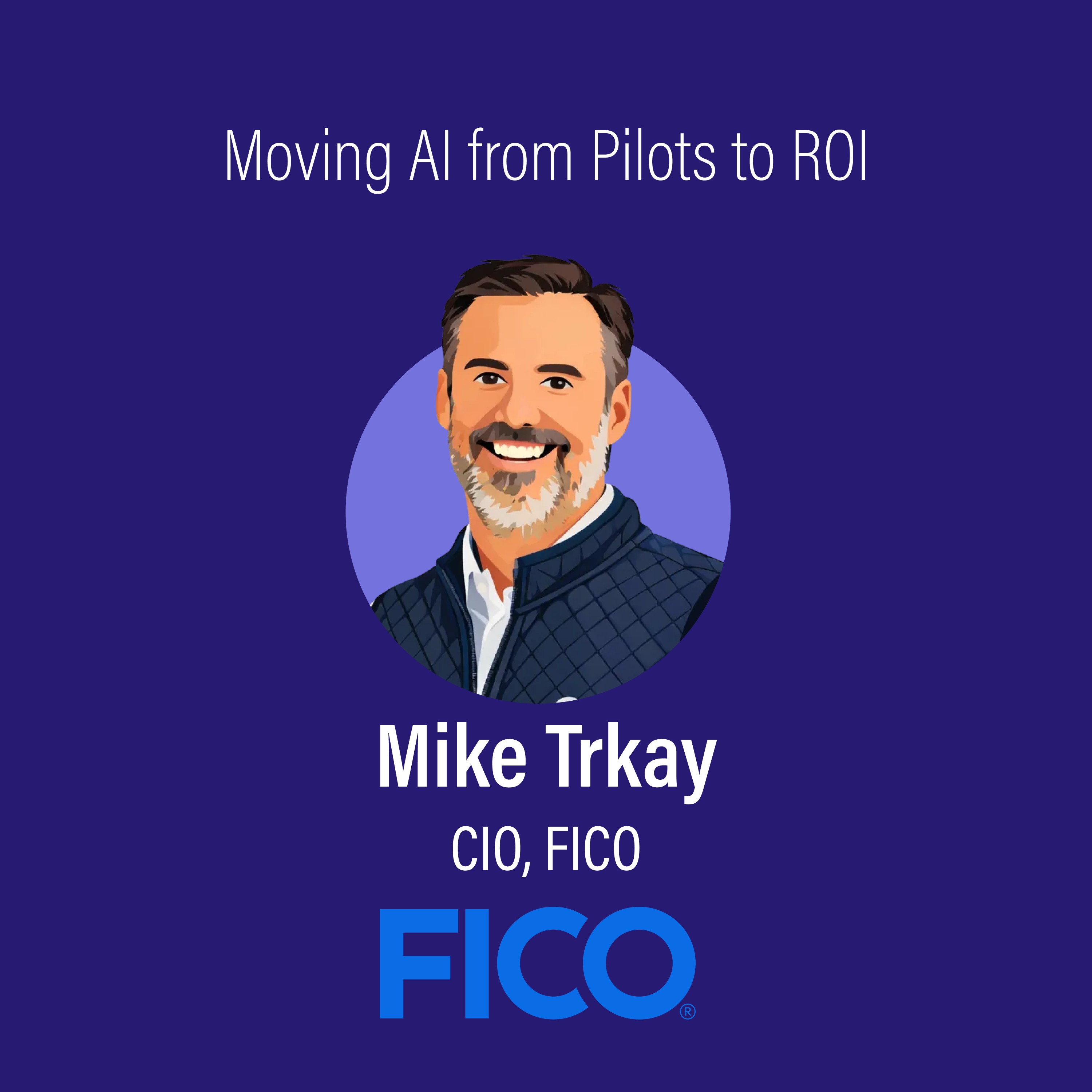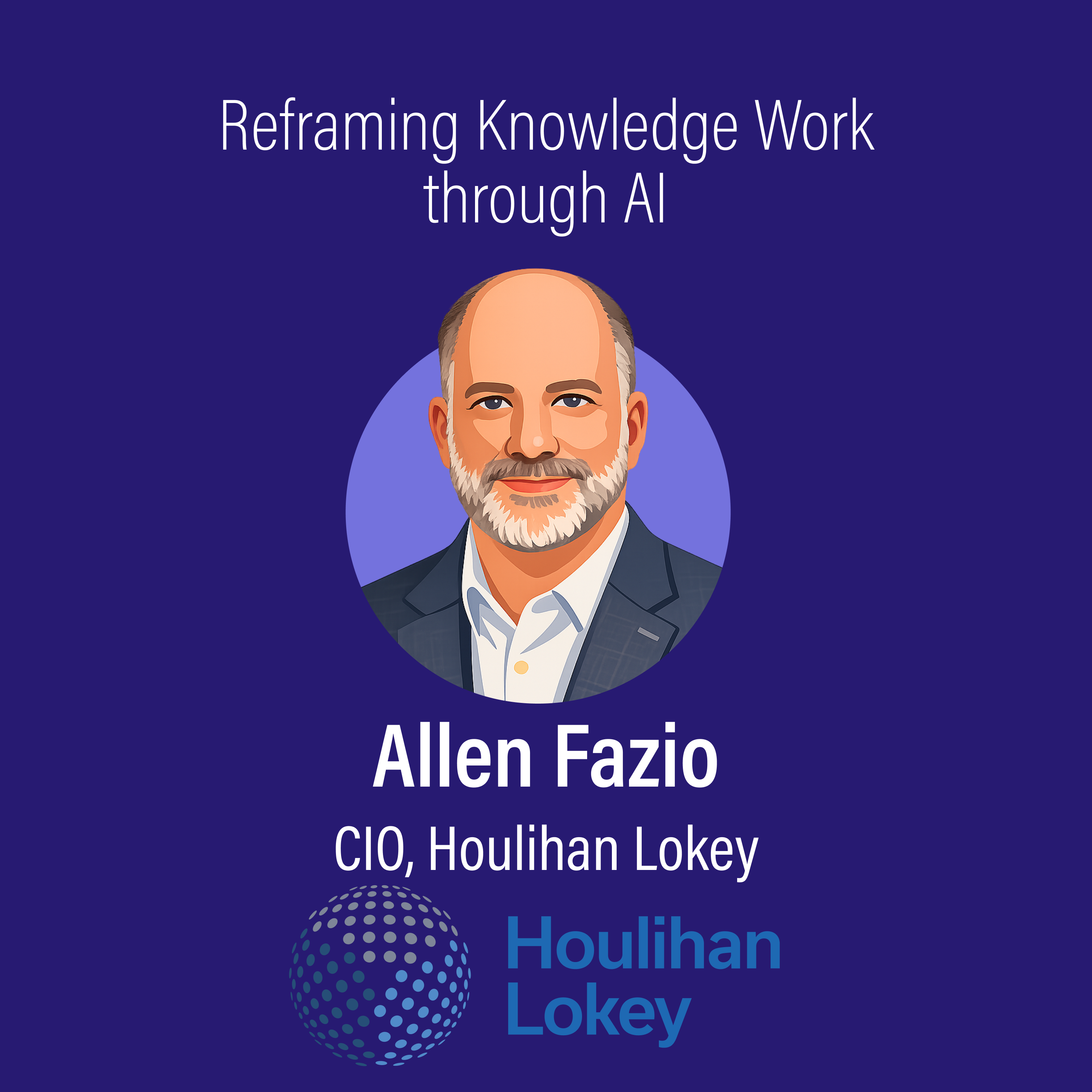The Future of AI-Powered Supply Chains
On the 53rd episode of Enterprise AI Innovators, hosts Evan Reiser (Abnormal AI) and Saam Motamedi (Greylock Partners) talk with Sineesh Keshav, Chief Technology Officer at Prologis. With over 1.3 billion square feet under management and over 8 billion dollars in revenue, Prologis is the world’s largest logistics real estate company. In this conversation, Sineesh shares his perspective on how Prologis drove 95% company-wide adoption of generative AI through personal productivity use cases. He also discusses the future of SaaS as enterprises begin to take greater ownership of their data and AI models, and how AI is enabling a shift from static infrastructure to dynamic, self-optimizing supply chains.
For Sineesh, Prologis’s AI journey didn’t begin with ChatGPT; it started with the fundamentals. “Good AI begins with good data,” he says. “And we’ve been investing in that long before the latest AI trend came on.” Years of cloud modernization and data curation laid the groundwork for what came next: an enterprise-wide rollout of generative AI tools. With PLD GPT, Prologis’s internal chat interface built on company data, adoption was immediate. “We have over 95% adoption,” Sineesh says. “It’s hard for me to think of another instance where it's had 95 % adoption with such little fuss.” That success wasn’t driven by mandates—it was driven by relevance. Rather than frame AI as a complex platform, Sineesh positioned it as a daily assistant. “At the very basic level, it is a productivity driver,” he says. “In that sense, it's very much a concierge, a personal concierge.” He describes how the same employee might use it one day to proofread an email, another day to summarize a 40-page memo, or draft that memo entirely on a third day. “That's what's gotten the adoption going.” To help employees go deeper, the team offered simple internal tutorials showing how to create custom GPTs. “We have a thousand-plus GPTs that have been created by our 2,500 employees,” he says. “So half of our folks are creating GPTs on average.” It’s a signal of bottom-up innovation. “That tells you something.”
As enterprise vendors race to bolt AI onto existing SaaS platforms, Sineesh is skeptical. “The future of SaaS is bleak,” he says. The problem? Fragmented context. “It is hard-pressed to find an enterprise, and we are no exception, that has all of its context buried in one single system.” With data and processes distributed across dozens of tools, he argues, it’s hard for vertical SaaS vendors to deliver value just by layering in AI. “If everyone has access to the latest, greatest models, which should be our assumption going forward—what is our differentiator?” he asks. “It comes to hard physical assets like we do, which is a plus, or data if it is in the virtual world.” That’s why Prologis is investing in internal orchestration layers and model infrastructure built on its own proprietary data. “Nourishing, nurturing, growing that proprietary data footprint is a must. And protecting it is a must.”
Looking ahead, Sineesh sees AI as the bridge to something much bigger. “Our employees get a lot more creative and less follow a playbook,” he says. In his vision of the future, AI automates and coordinates the core operations of the business like leasing, property management, and investment underwriting, while humans focus on product development and strategic innovation. And at the infrastructure level? AI will enable a supply chain that simulates and adjusts in real time. “Imagine running millions of simulations of what happens if the Suez Canal closure happens again—and within five minutes, the world is back online,” he says. He calls this the "ultimate pizza tracker version of the supply chain,” where every asset is visible, every disruption modeled, and every recovery accelerated by AI.
While the future of enterprise AI is filled with bold potential, such as self-optimizing infrastructure, agent-driven workflows, and reimagined software stacks, Sineesh reminds us that transformation starts with the basics. “Build a strong data foundation,” he says. “Empower employees to experiment. Focus on solving real problems before chasing moonshots.” At Prologis, AI isn’t about replacing people or chasing hype. It’s about enabling work to be more creative, decisions more informed, and operations more resilient. “With the right foundation,” Sineesh says, “the magic starts to happen.”
Listen to Sineesh's episode here and read the transcript here.





